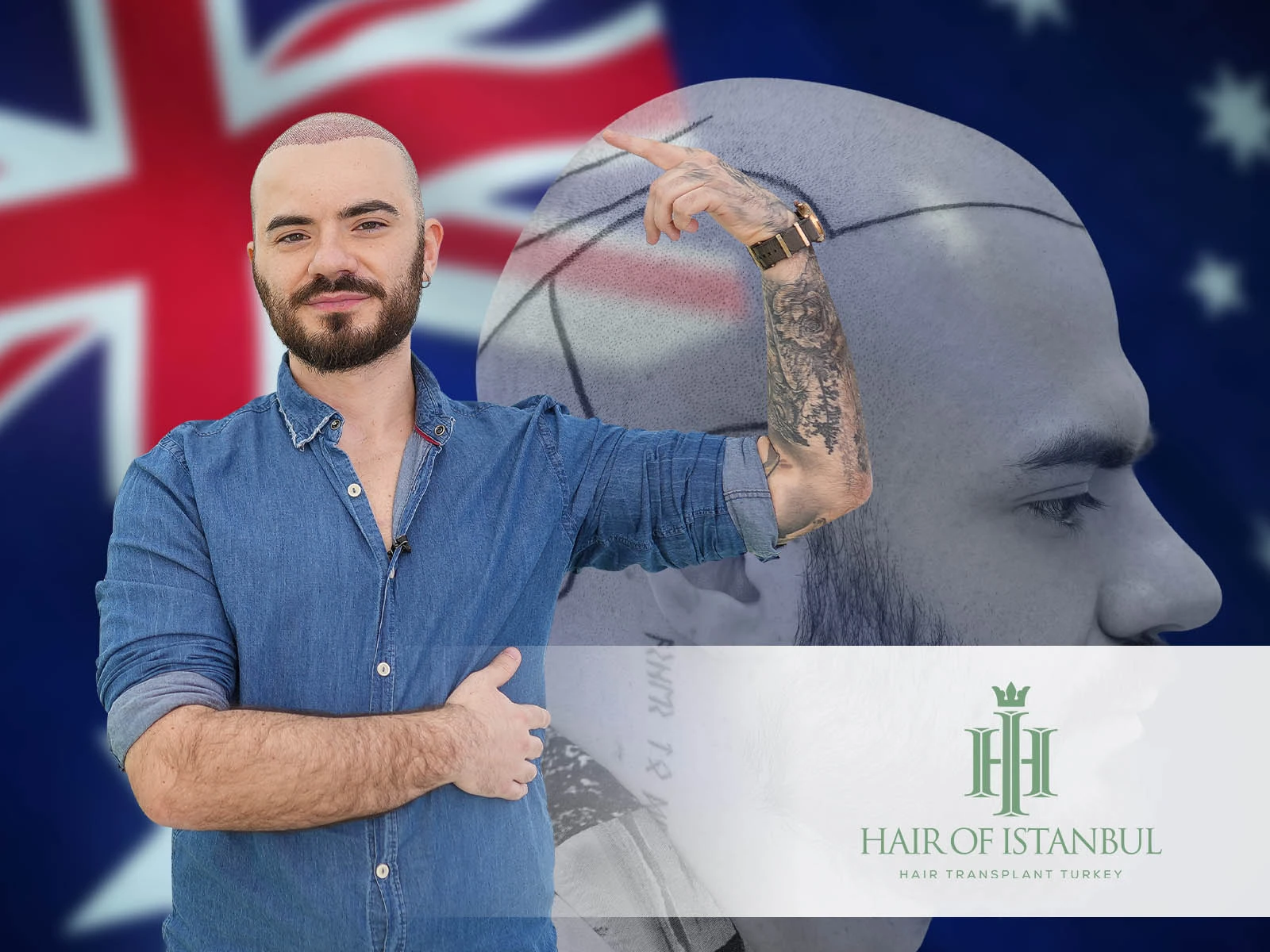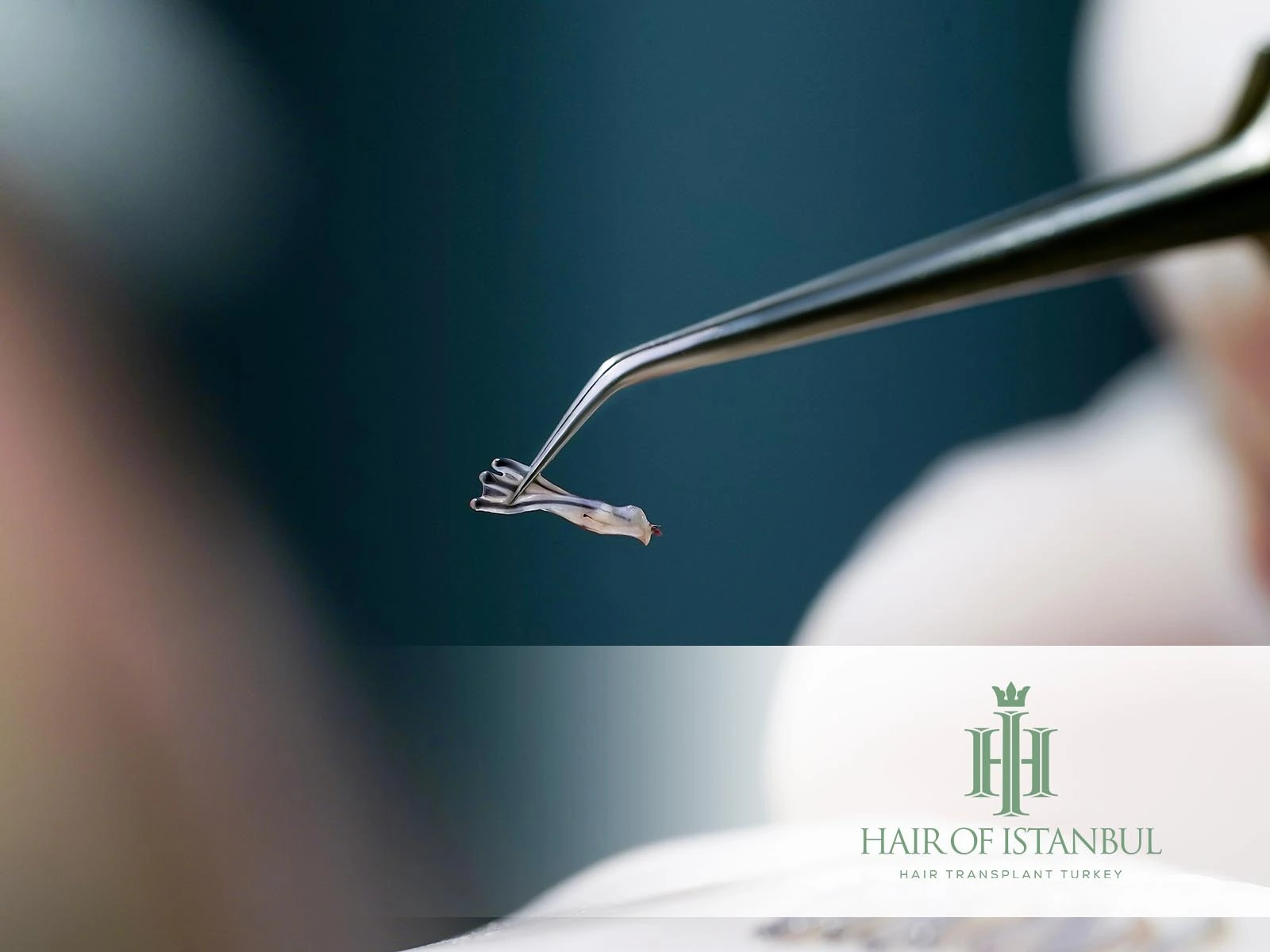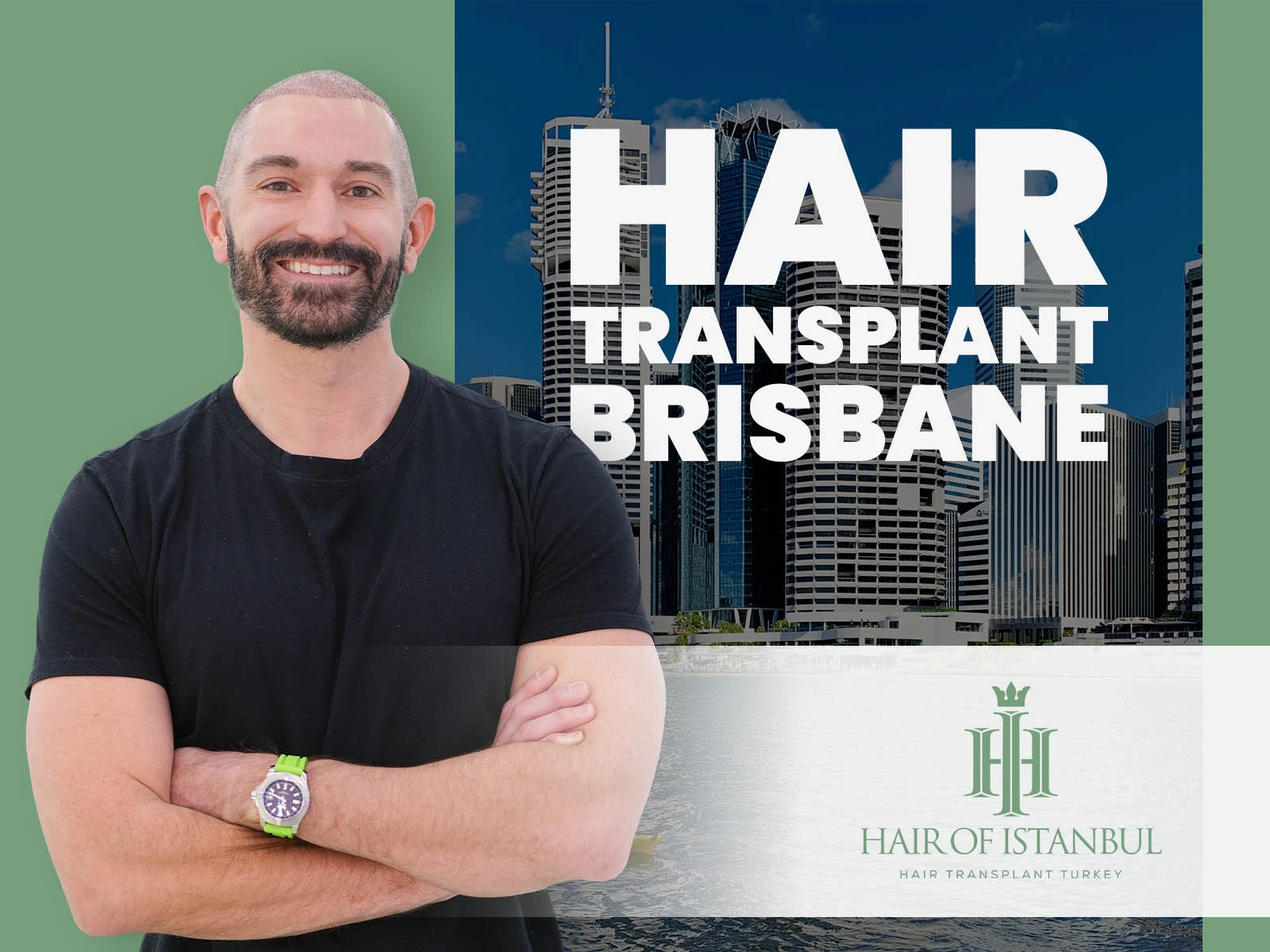Does Nicotine Cause Hair Loss?
Hair loss is a common concern for many people, and various factors can contribute to this condition. One factor that often comes up in discussions is the relationship between nicotine and hair loss. While some believe it’s just a smoking hair loss myth, evidence suggests that nicotine may indeed play a role in hair thinning.
In this article, we will explore the connection between nicotine consumption and hair loss, and provide insights on how to address this issue. So, if you’re worried about the impact of nicotine on your hair, keep reading to learn more.
What is Nicotine?
Nicotine is a natural chemical found primarily in tobacco products. This alkaloid is present in tobacco leaves and is most commonly associated with cigarettes and other smoking-related items. As a stimulant, nicotine can affect the nervous system, creating a temporary sense of alertness and pleasure. However, it’s important to note that it is also highly addictive and can lead to various health problems when consumed in excessive amounts. It is also known to cause hair loss.
How Common is Nicotine Hair Loss?
The connection between nicotine and hair loss is more apparent when considering the statistics from various studies. According to experts, smoking is a significant risk factor for hair loss, especially in men.
In a particular study, it was found that out of 500 smokers, 425 experienced some degree of hair loss, while only 200 out of 500 non-smokers showed signs of hair shedding. [1]
These findings indicate that nicotine can play a major role in promoting hair loss. The harmful chemicals in cigarettes can damage hair follicles, leading to weaker and thinner hair strands.
Does Nicotine Stop Hair Growth?
Nicotine use can negatively impact hair growth by affecting blood circulation. When hair follicles receive less than their fair share of blood flow, their growth can be diminished. Consequently, nicotine’s influence on circulation can lead to a slowdown or even cessation of hair growth. [2]
Also Read: Traction Alopecia: When Is it too Late? The Most Important Signs!
Will Quitting Nicotine Help Hair Loss?
Despite the damage that smoking can cause, hair loss due to smoking can be reversible if you quit the habit entirely. If your hair has already begun to thin, quitting smoking will also help you hold onto your remaining hair for a longer period. [3]
Will Hair Loss from Nicotine Grow Back?
Experts highlight that hair loss caused by smoking is reversible and treatable. When smoking is stopped, the body begins to heal and function normally, making it possible for hair to regrow in due time. [4]
Will Hair Thicken After Quitting Smoking?
Quitting smoking can indeed benefit hair health and assist in regaining the natural growth cycle. An increased blood flow to hair follicles and nutrients can result in hair becoming thicker and more moisturized after quitting smoking. [5]
How Long Does It Take to Reverse Nicotine Hair Loss?
Just 6 hours after quitting smoking, your blood pressure begins to stabilize, and within 3 months, your blood circulation improves. As a result, your hair starts to receive the oxygen, minerals, and nutrients it needs again. However, this doesn’t guarantee instant healthy hair growth. It may take some time for your hair to recover and regain its former health, but the process of improvement will begin once you quit smoking. [6]
How Long Does It Take for Hair to Get Thicker After Quitting Smoking?
On average, it may take about 7-8 months for hair loss to self-correct after quitting smoking. During the subsequent 6-month period, your hair can gradually become thicker. It is important to note that this timeframe may vary from person to person, as individual factors can influence the rate of hair recovery. [7]
Also Read: Hair Transplant Trypophobia: Say Goodbye to Hole Fears Today!
How to Stop Hair Loss From Nicotine?
The most effective way to stop hair loss caused by nicotine is to quit smoking. Once you quit, your body can start to heal, and your hair will begin to receive the essential nutrients it needs for growth. Additionally, you can support hair health by following a balanced diet, maintaining good scalp hygiene, and seeking professional help if needed.
Below is an informative table outlining various methods and their explanations on how to stop hair loss from nicotine.
| Quit smoking | Eliminating nicotine from your system will help improve blood circulation, allowing nutrients to reach hair follicles. |
| Nicotine replacement therapy | Using nicotine replacement therapies (NRT) such as gum or patches can help you reduce nicotine intake gradually while minimizing withdrawal symptoms. |
| Antioxidant supplements | Consuming antioxidant-rich supplements like Vitamin E and Vitamin C can help fight free radicals produced by smoking, which can damage hair follicles. |
| Improve indoor air quality | Using air purifiers and ventilating your living space can help reduce the harmful effects of secondhand smoke on your hair and overall health. |
| Hydrate | Drinking plenty of water can help your body flush out toxins from smoking and improve hair health. |
| Exercise | Engaging in regular exercise can boost circulation, which may help counteract the negative effects of nicotine on hair growth. |
| Seek professional help | Consult a doctor or dermatologist for professional advice and possible treatments tailored to nicotine-induced hair loss. |
Nicotine Hair Loss Study
According to research findings on the National Library of Medicine (NIH) website, smoking can cause hair loss through various mechanisms. These include reducing blood flow through vasoconstriction, causing cellular damage by forming DNA adducts, increasing free radical damage in hair follicles, accelerating the aging process, and amplifying hormonal effects.
The existing literature shows a significant relationship between smoking and androgenetic alopecia (AGA). However, studies demonstrating the benefits of avoiding smoking in improving hair loss are currently lacking. Additionally, large controlled studies with histological documentation to verify the findings are still not available. Therefore, further scientific research is needed to better understand the relationship between smoking and hair loss and develop treatment strategies.
Also Read: Hair Transplant Infection The Risks of Infected Follicles
How to Remove Nicotine Hair Staining?
While nicotine may not significantly change the color of your hair, it can cause a yellowish hue, particularly in facial hair like mustaches and beards. This staining is not only unsightly but can also be challenging to remove. To help you get rid of nicotine hair stains, follow the steps outlined in the table below. [8]
| Wash your facial hair | Start by thoroughly washing your facial hair with a gentle, sulfate-free shampoo to remove any build-up. |
| Apply a facial hair mask | Use a facial hair mask specifically designed for removing stains, following the product’s instructions. |
| Rinse and condition | Rinse the facial hair mask out thoroughly, then use a beard conditioner or beard oil to restore moisture. |
| Trim the stained hair | If the staining persists, consider trimming the affected facial hair to remove the stained portions. |
| Maintain cleanliness | To prevent future staining, ensure you wash your facial hair regularly and avoid exposure to nicotine. |
By following these steps, you can successfully remove nicotine stains from your mustache and beard, maintaining a clean and healthy appearance.
FAQ
Does nicotine gum cause hair loss?
Nicotine gum may contribute to hair loss, as it contains nicotine which can constrict blood vessels and reduce blood flow to hair follicles. However, the direct link between nicotine gum and hair loss is not well-established.
How long does it take for nicotine to leave your system?
Typically, it takes about 72 hours for nicotine to leave your system, while its byproduct, cotinine, may take up to three weeks to be eliminated.
Does the nicotine in vaping cause hair loss?
Vaping nicotine may contribute to hair loss, as nicotine restricts blood flow to hair follicles, leading to hair thinning and loss.
How do you detox your body from nicotine fast?
To detox from nicotine quickly, increase your water intake, consume antioxidant-rich foods, exercise regularly, and get adequate sleep.
Does nicotine replacement cause hair loss?
Nicotine replacement therapies might still cause hair loss due to the presence of nicotine, but more research is needed to confirm this.
Can nicotine stimulate hair growth?
There’s no evidence that nicotine stimulates hair growth; in fact, it may have the opposite effect by reducing blood flow to hair follicles.
Does nicotine patch cause hair loss?
Nicotine patches could potentially lead to hair loss, as they still introduce nicotine to the bloodstream, affecting hair follicles.
Is hair loss from nicotine permanent or reversible?
Hair loss from nicotine is often reversible once the nicotine exposure is eliminated, allowing hair follicles to recover and promote regrowth.
Does nicotine lozenge cause hair loss?
Limited information is available on nicotine lozenges causing hair loss, but it’s possible due to nicotine’s impact on hair follicles.
Does nicotine thicken hair?
Nicotine is unlikely to thicken hair; quitting nicotine use can improve hair health and potentially restore its natural growth cycle.
Also Read: Hair Transplant Success Rate: Top Techniques Compared
CONCLUSION
In conclusion, research has shown that nicotine can indeed contribute to hair thinning, but other factors such as genetics and lifestyle choices play a significant role as well. It’s important to understand that quitting nicotine use can help improve the health of your hair, but individual results may vary. To promote healthy hair growth, consider making lifestyle changes that include a balanced diet, proper hair care, and stress management.
If you’ve experienced hair loss due to nicotine or any other reason, you might consider hair transplantation as a solution. Turkey is known for its advanced hair transplantation techniques and skilled specialists.At Hair of Istanbul clinic, in particular, you can expect to receive expert care and achieve top-notch results.
References:
- [1] Daniel Yetman, May 17, 2021 – The Connection Between Smoking, Tobacco, and Hair Loss – https://www.healthline.com/health/smoking/does-smoking-cause-hair-loss
- [2] Super user, Mar 24, 2022 – Is Nicotine Effecting Your Circulation and Hair Growth Here’s the Solution – https://www.newlookinstitute.com/blog/is-nicotine-effecting-your-circulation-and-hair-growth-here-s-the-solution.html
- [3] Jamie Rowe, Mar 11, 2022 – Does Smoking Cause Hair Loss? – https://www.niquitin.co.uk/does-smoking-cause-hair-loss/
- [4] Advaitaa Ravi, Dec 7, 2021 – Smoking And Hair Loss – Is There A Connection? – https://skinkraft.com/blogs/articles/does-smoking-cause-hair-loss
- [5] Dr Sameer Sanghvi, Sep 16, 2020 – Smoking and hair loss – https://onlinedoctor.lloydspharmacy.com/uk/stop-smoking/smoking-baldness
- [6] Stephanie Anderson, Apr 24, 2023 – The link between smoking and hair loss may convince you to quit for good – https://pilot.com.au/co-pilot/smoking-and-hair-loss
- [7] Valentin Galitovskiy, Nov 11, 2012 – Muscle sarcomas and alopecia in A/J mice chronically treated with nicotine – https://www.ncbi.nlm.nih.gov/pmc/articles/PMC3407298/
- [8] Alan Goodstat, Nov 17, 2022 – Everything You Need To Know About Nicotine Hair Loss – https://lantanarecovery.com/everything-you-need-to-know-about-nicotine-hair-loss/







